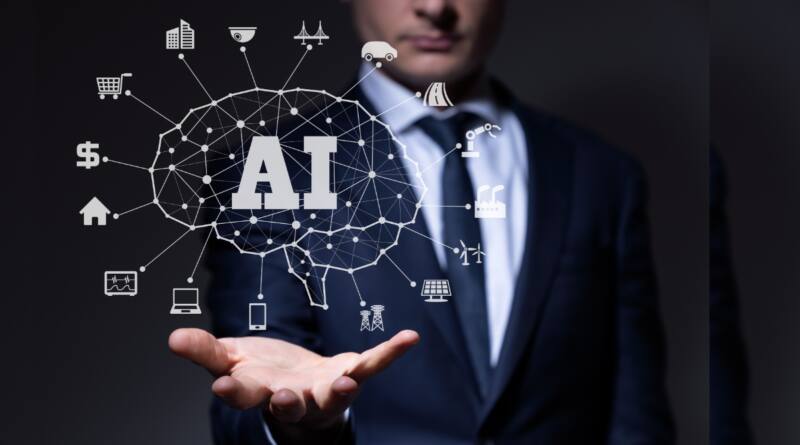The Indian Diaspora’s Role In Advancing AI: A Global Perspective
Artificial intelligence (AI) is transforming various industries across the world, with advancements being made every day. However, the contributions of the Indian diaspora to AI’s development have been significant. Let’s explore how Indian-origin AI professionals are making an impact in Silicon Valley, Europe, Asia, and beyond.
Success Stories:
Indian-origin AI professionals have played a critical role in the advancement of AI globally. One such success story is Sundar Pichai, the CEO of Google. Pichai, an Indian-American, has been a driving force behind the development of AI at Google, making significant contributions to the company’s AI research and development.
Another success story is the Indian-origin entrepreneur and philanthropist, Vinod Khosla. Khosla is the founder of Khosla Ventures, a venture capital firm that invests in AI startups. Khosla has made investments in several AI startups that have gone on to become successful, including Guardant Health and H20.ai.
Challenges:
Despite the significant contributions made by the Indian diaspora to AI’s development, there are still challenges they face. One of the most significant challenges is the lack of diversity in the industry. A study by the Harvard Business Review found that only 26% of AI professionals in the US are women, and even fewer are people of colour.
Another challenge is the high level of competition in the industry. With AI being such a lucrative field, there is intense competition among professionals to make breakthroughs and develop new technologies.
Opportunities for Collaboration:
Despite the challenges, there are still many opportunities for collaboration between the Indian diaspora and India’s tech industry. One such opportunity is the development of AI-powered healthcare solutions. India has a vast population that is in dire need of affordable and accessible healthcare. AI-powered healthcare solutions can help address this issue by making healthcare more efficient and cost-effective.
Another opportunity is the development of AI-powered agriculture solutions. India is an agricultural country with a large population engaged in farming. AI-powered solutions can help increase agricultural productivity, reduce waste, and make farming more sustainable.
Potential for AI to Transform India’s Economy:
AI has the potential to transform India’s economy, with the Indian diaspora playing a critical role in achieving that. AI-powered solutions can help address several pressing issues in India, such as healthcare, agriculture, and education.
In healthcare, AI can be used to improve disease detection and diagnosis, identify disease outbreaks, and predict patient outcomes. In agriculture, AI can be used to optimize crop yield, reduce water usage, and prevent pest infestations. In education, AI can be used to personalize learning, assess student progress, and provide targeted interventions for struggling students.
The Indian diaspora has made significant contributions to AI’s development globally, with success stories like Sundar Pichai and Vinod Khosla leading the way. Despite the challenges they face, there are still many opportunities for collaboration between the Indian diaspora and India’s tech industry. The Indian diaspora’s role in achieving this transformation cannot be overstated, and it is essential to continue supporting and nurturing their contributions to AI’s development.
India is a leading hub for AI talent. According to a report by Great Learning, India has the second-highest number of AI and machine learning job openings in the world after the United States, accounting for 9.8% of all AI-related job postings globally. This shows that the Indian workforce has the skills and expertise required to contribute to the development of AI.
Indian-origin AI professionals are playing key roles in some of the world’s leading technology companies. For example, Sundar Pichai, the CEO of Google, is of Indian origin. Similarly, Satya Nadella, the CEO of Microsoft, was born in Hyderabad, India. The contributions of these and other Indian-origin AI professionals have been critical to the development of AI in Silicon Valley and beyond.
The Indian government is also making significant investments in AI. In 2020, the Indian government announced plans to create a national programme on AI with a budget of $480 million over five years. This programme aims to support research and development in AI, promote the adoption of AI in various industries, and train a workforce with the necessary skills to work with AI.
The potential of AI to transform India’s economy is significant. According to a report by Accenture, AI has the potential to add $957 billion to India’s economy by 2035, which represents a 15% increase in India’s current gross value added (GVA) [3]. The report also highlights the potential for AI to create new jobs and transform existing ones.
Indian-origin AI professionals are also contributing to the development of AI in Europe and Asia. For example, Demis Hassabis, the co-founder of DeepMind, which was acquired by Google in 2015, is of Indian origin. DeepMind is a leading AI research company based in London. Similarly, Fei-Fei Li, a renowned AI researcher and co-director of the Stanford Institute for Human-Centered AI, was born in Beijing to parents of Indian and Chinese origin.
These are just a few examples of the ways in which the Indian diaspora is contributing to the development of AI on a global scale. As AI continues to transform various industries, it is clear that the contributions of Indian-origin AI professionals will continue to be critical to its advancement. Furthermore, by collaborating with India’s tech industry, the diaspora can help drive the growth of AI in India and unlock its potential to transform the country’s economy.




